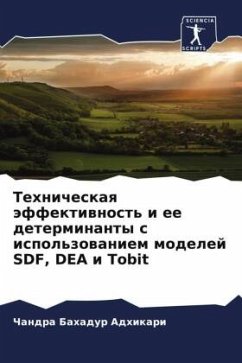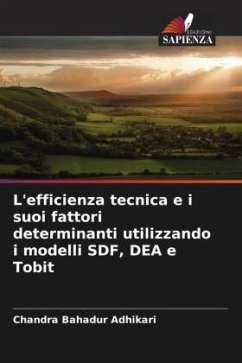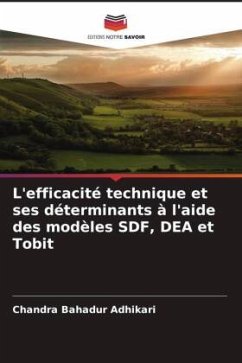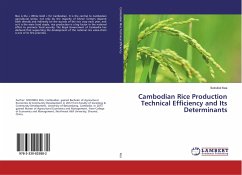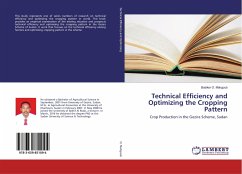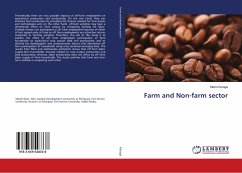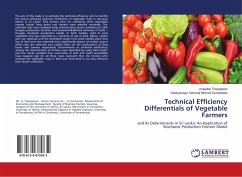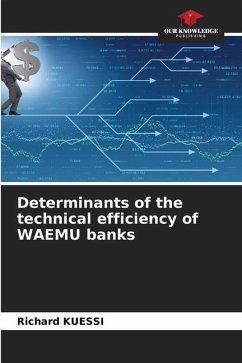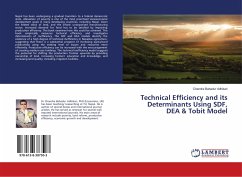
Technical Efficiency and its Determinants Using SDF, DEA & Tobit Model
Versandkostenfrei!
Versandfertig in 6-10 Tagen
24,99 €
inkl. MwSt.

PAYBACK Punkte
12 °P sammeln!
Nepal has been undergoing a gradual transition to a federal democratic state. Alleviation of poverty is one of the most prioritised socioeconomic development goals in many developing countries, including Nepal. Given the limited stock of land, and the infant/ unorganised manufacturing sector, increased demand for food has to be satisfied by improving production efficiency. This book examines how this could be achieved. This book empirically measures technical efficiency and investigates determinants of inefficiency. The SDF and DEA models identify the existence of a high degree of technical in...
Nepal has been undergoing a gradual transition to a federal democratic state. Alleviation of poverty is one of the most prioritised socioeconomic development goals in many developing countries, including Nepal. Given the limited stock of land, and the infant/ unorganised manufacturing sector, increased demand for food has to be satisfied by improving production efficiency. This book examines how this could be achieved. This book empirically measures technical efficiency and investigates determinants of inefficiency. The SDF and DEA models identify the existence of a high degree of technical inefficiency in Nepalese agriculture, suggesting that there is a substantial prospect of increasing agricultural productivity using the existing level of inputs and resources more efficiently. Productive efficiency can be increased with the encouragement of creating medium size holdings. The technical inefficiency model suggests the potential for shifting the production frontier upwards by providing ownership of land, increasing farmers' education and knowledge, and increasing land quality, including irrigation facilities.





